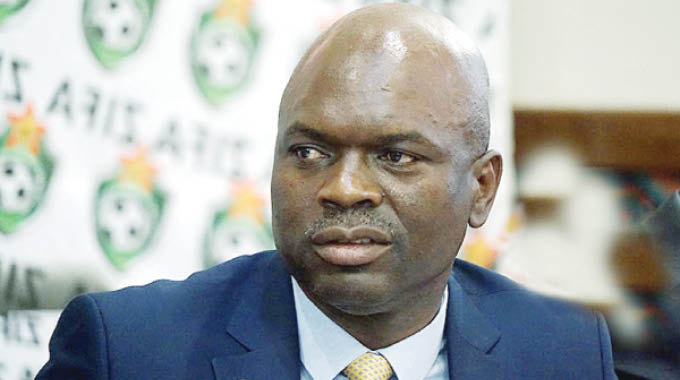China should expand health investments and endear itself to the people

Tatenda Chinyani
China has just completed refurbishing Wilkins Hospital in Harare, Zimbabwe’s biggest centre to isolate and treat the coronavirus disease (Covid-19) which has already killed one in the Southern African country.
The upgrade came at a cost of US$500 000 and 18 days of work on the hospital.
Chinese help could not have come at a better time.
There are fears that African countries, which have vulnerable health systems, could face the worst of the pandemic that has killed thousands in developed countries.
China’s intervention — with its massive repository of knowledge and expertise having gone over the worst of the pandemic that started in Wuhan — could be handy in Africa, particularly in Zimbabwe.
Now, China could provide a lot of leadership that could endear it to the people of Zimbabwe by deploying resources to where most impact is felt — at the right time.
China must show that it stands by the people, and stands with them in moments of great danger.
In Zimbabwe, there are a number of institutions that need urgent help across the main urban areas such as Bulawayo, Gweru, Masvingo, Mutare and Marondera, among others. Some of them have been designated as Covid-19 isolation and treatment centres.
In Bulawayo, particularly, Thorngrove Hospital which was constructed in the 1940s is crumbling. It is the centre that was originally designated to fight the disease as a treatment and isolation centre before a decision was made to move the function to Ekusileni, where there are better facilities and the National Social Security Authority (Nssa) has invested resources.
This only means that work at the former is outstanding, and needs someone with deep pockets to come in.
China is not a stranger to the health sector in Zimbabwe and it’s major project to date is the Mahusekwa Hospital, also known as China-Zimbabwe Friendship Hospital, which was built under a Chinese aid project to help Zimbabwe provide quality health services in the countryside, where 70 percent of the population live.
The construction and supply of medical equipment of Mahusekwa Hospital in Mashonaland East took about two years to complete, and the $6 million project was completed in 2013.
On a larger scale, Chinese involvement in Africa’s health sector is part of the Asian giant’s strategic partnership with the continent under the aegis of Forum on Africa-China Co-operation.
It will be recalled that in 2018, during the Focac Summit in Beijing, parties agreed on the Beijing Action Plan (2019–21) focusing on the implementation of eight major initiatives to strengthen the co-operation between China and Africa.
Co-operation in the area of health was one of the key focus areas including industrial, trade, and cultural promotion.
A month before the FOCAC Summit, the High-Level Meeting on China–Africa Health Cooperation had also emphasised the importance of public health co-operation.
According to a paper entitled, “Public health priorities for China-Africa cooperation” by Gao and Nkengason (2019): “The fulfilment of the ambitious China-Africa health initiative builds on years of efforts of Chinese and African health authorities and professionals, which can be traced back to 1963 . . .
“As of 2017, there were about 1 050 health professionals from China working in 53 African countries. Strengthening the public health system in this vast continent requires strong political commitment and secured financial investment.
“The development of national public health institutes (NPHIs) in African states, centrally coordinated by a continent-wide agency — the Africa Centres for Disease Control and Prevention (CDC) equipped with recognised technical expertise and authority, is critical.”
The authors note that since 2014, when the most severe ebola outbreak in West Africa occurred, to the ongoing epidemic in the Democratic Republic of the Congo, China CDC has been working with the African Union and other international partners to support the establishment of Africa CDC by promoting its strategy, institutional development, and capacity building. Exchange visits, trainings, and consultations are frequently organised for leaders and professionals from Africa CDC and its five Regional Collaborating Centres (RCCs) to understand public health services and systems in China, and to identify China’s potential resources or successful models that can be used in local African contexts.”
The scale of Chinese involvement in Africa’s public health workers is growing — and impressive in some areas involving developing public health training and disease-control programmes in Africa focused on emerging infectious diseases, malaria, HIV/Aids, and health informatics, in collaboration with other institutions.
China will also strengthen the entire range of data use including data acquisition, warehousing, timely use, and sharing in Africa while it will help in strengthening regulatory processes and creating an environment that facilitates access to high-quality, cost-effective diagnostic reagents, vaccines, and drugs developed and manufactured in China and other developing countries to foster the south-south collaboration could greatly benefit the African community.
Another key focus area is to promote the adoption of the Chinese public health model in Africa.
Experts say that since African health organisations have a similar structure to the Chinese hierarchical system of national, provincial, prefectural, and county CDC, China can adjust its technical strategies or protocols to support the national health plans or programmes in African countries.
The current pandemic offers China a golden opportunity to pick some low hanging fruits by investing in the good health of African people and specifically so in Zimbabwe.
Such a recalibration of priorities could win China more friends among ordinary people.










Comments